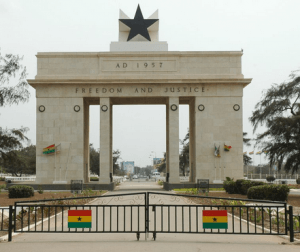Ghana ranks 97th in World Economic Freedom Report 2015
 Ghana has retained its 97th position, out of 123 countries in the latest World Economic Freedom Report released this week, placing it among the least free countries in the world.
Ghana has retained its 97th position, out of 123 countries in the latest World Economic Freedom Report released this week, placing it among the least free countries in the world.
The Economic Freedom of the World Report analyzes countries’ policies and institutions to measure the extent to which citizens are permitted to be economically free – levels of personal choice, ability to enter markets and participate in voluntary exchange, security of private property, rule of law and so on.
Produced annually by Canadian policy think tank Fraser Institute, together with the Economic Freedom Network – a global network of research institutes and think tanks, – the latest ranking used data from 2013, which Fraser Institute said was the most recently available.
Ghana’s performance in the ranking was 6.31 (over 10), a slight improvement from 6.22 the previous year, nonetheless offset by a slight general improvement in global economic freedom which rose to 6.86 from 6.84 in the previous report.
Five areas and their subcomponents were assessed: Size of Government, Legal System and Property Rights, Sound Money, Freedom to Trade Internationally, and Regulation.
Subcomponent areas assessed include government consumption, top marginal tax rate, government enterprises and investment; judicial independence, integrity and impartiality, business costs of crime and reliability of legal enforcement; money growth, inflation, and freedom to own foreign currency bank accounts; tariffs, trade barriers and forex black markets; business regulations, and credit and labour market regulations.
Ghana’s index of 6.31 places it among the least free economic nations of the 123 countries.
There were slight reductions in Ghana’s indices in three areas: Legal system and Property rights, Sound Money, and Freedom to Trade Internationally; while there was also slight improvements in the indices for the other two areas: Size of Government and Regulation.
Hong Kong tops the rankings, followed by Singapore, New Zealand, Switzerland and Mauritius – the only African country in the top 10.
Five African countries are in the bottom 10: Malawi, Gabon, Zimbabwe, the Democratic Republic of Congo and Algeria.
Fraser Institute noted that research in top peer-reviewed journals showed that people living in countries with high levels of economic freedom enjoy greater prosperity, more political and civil liberties, and longer lives.
“Economic freedom breeds prosperity, and the most economically free countries offer the highest quality of life while the lowest-ranked countries are usually burdened by oppressive regimes that limit the freedom and opportunity of their citizens,” Fred McMahon, a Research Chair in Economic Freedom at the Institute said.
The think tank also drew an association between economic freedom and GDP per capita, noting that countries in the top quartile of the ranking had an average per capita GDP of $38,601 in 2013, compared to $6,986 for bottom quartile nations.
By Emmanuel Odonkor
Copyright © 2015 by Creative Imaginations Publicity
All rights reserved. This article or any portion thereof may not be reproduced or used in any manner whatsoever without the express written permission of the publisher except for the use of brief quotations in reviews.
